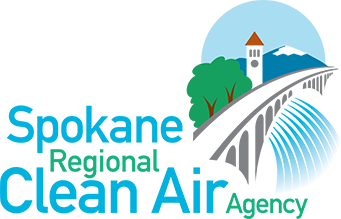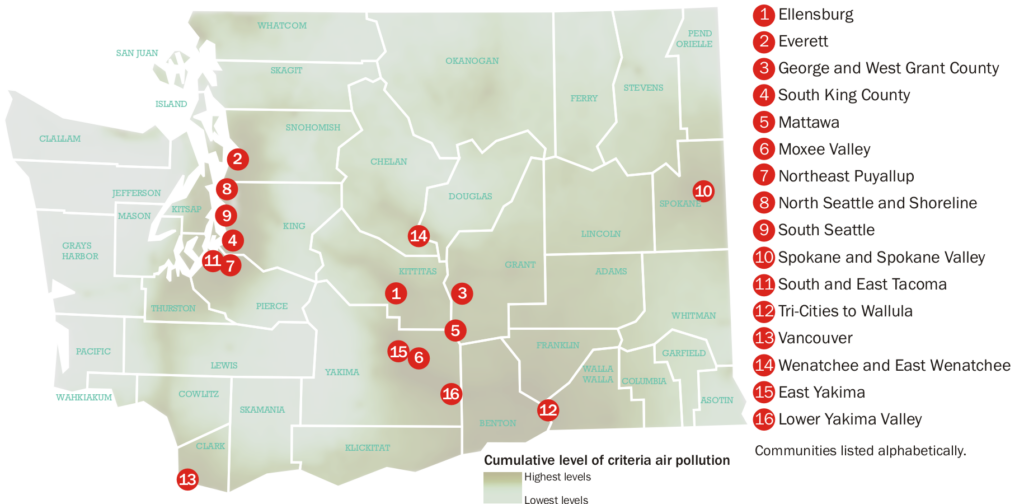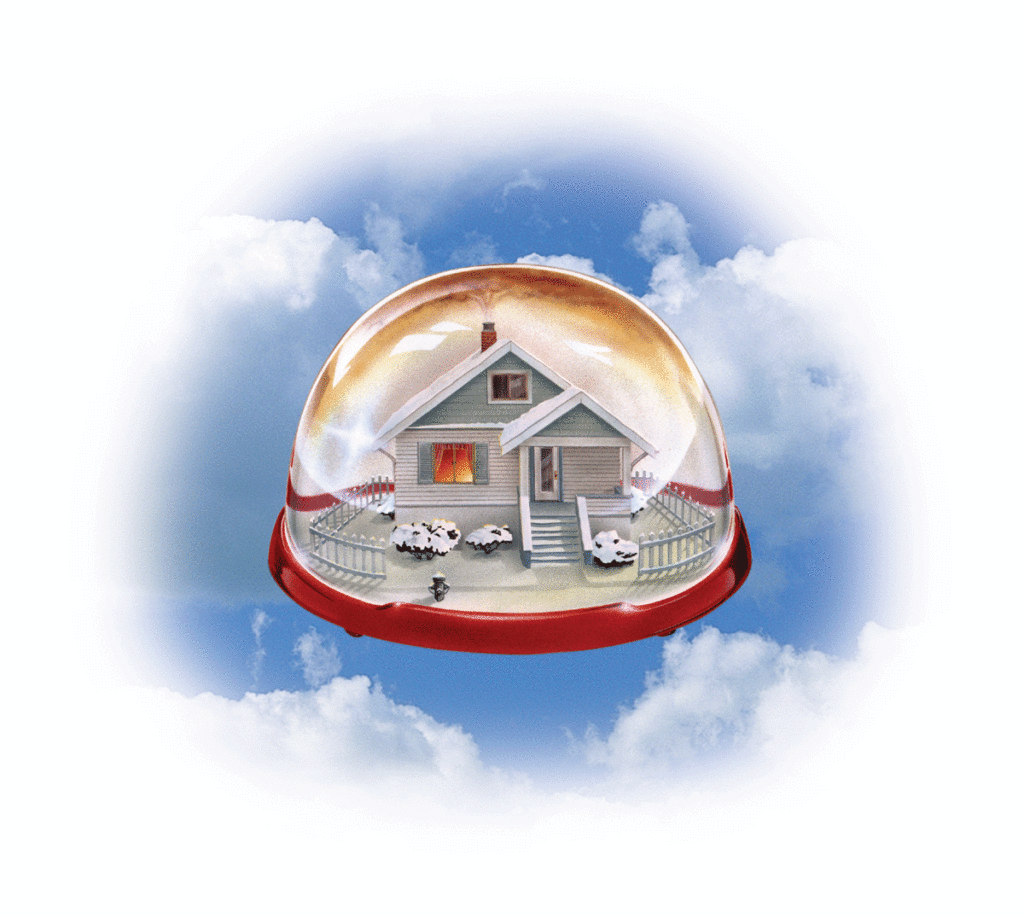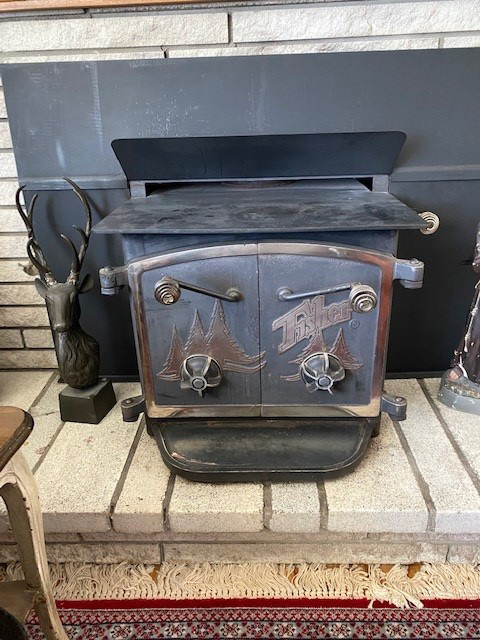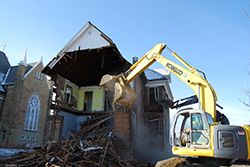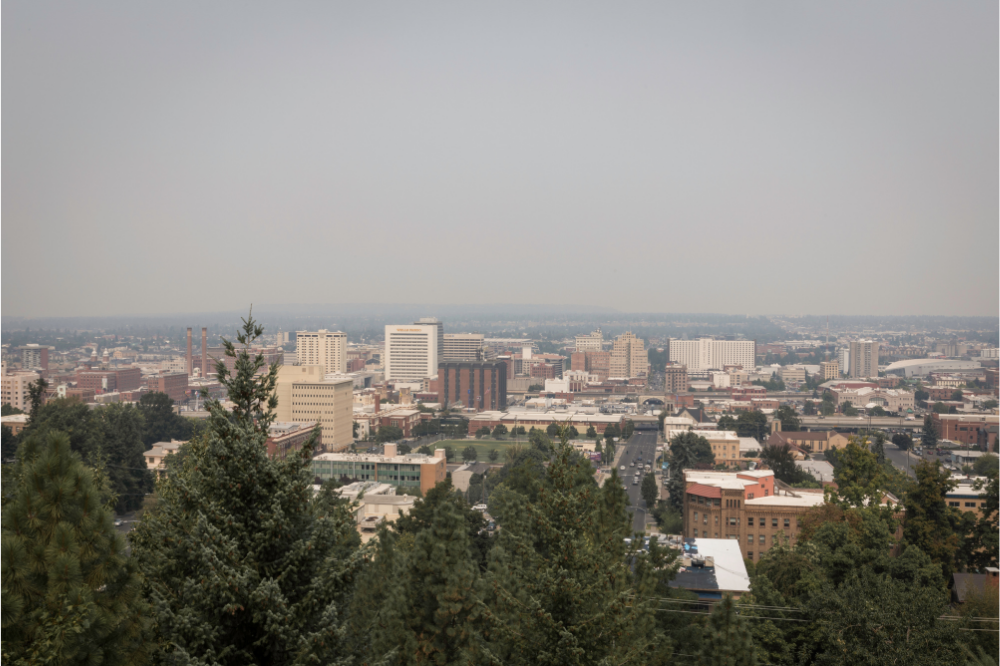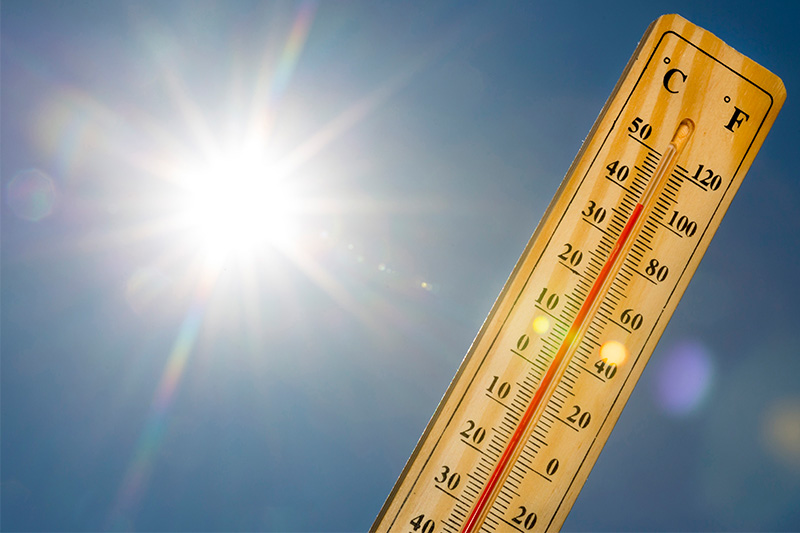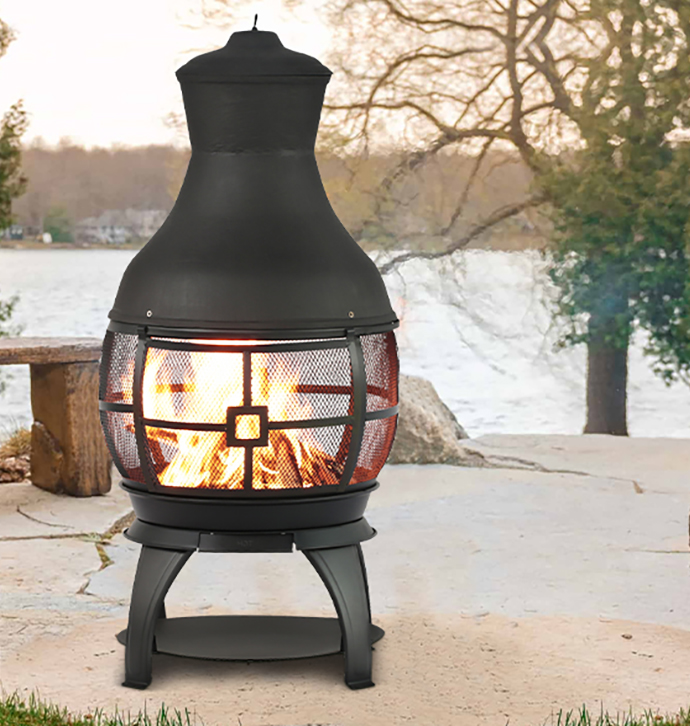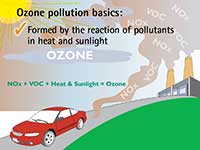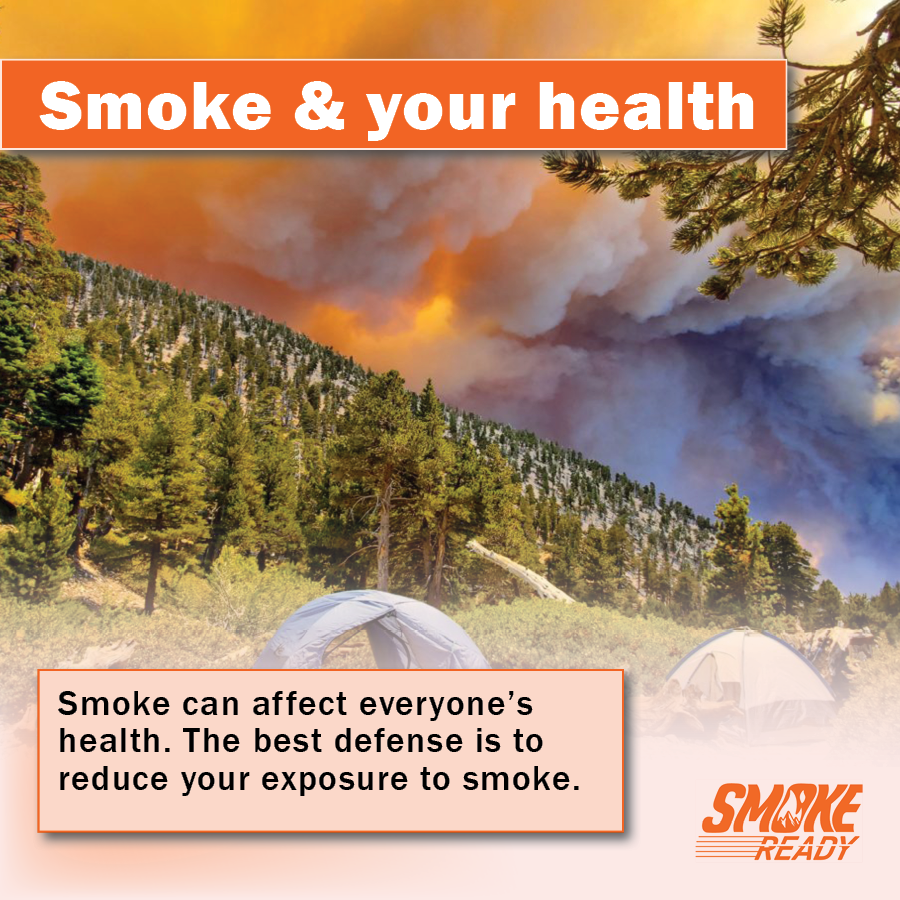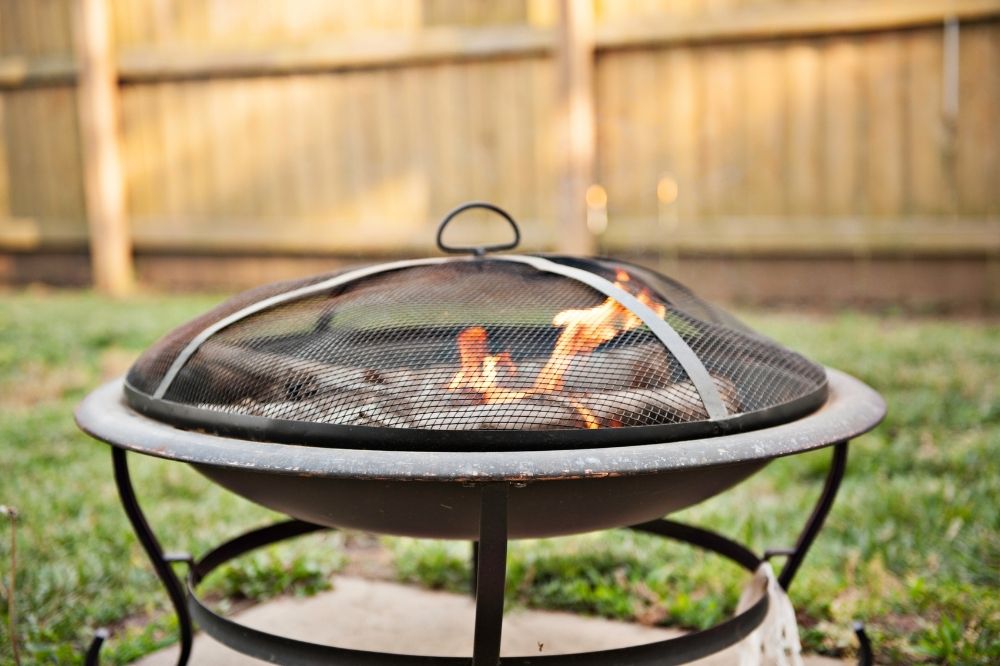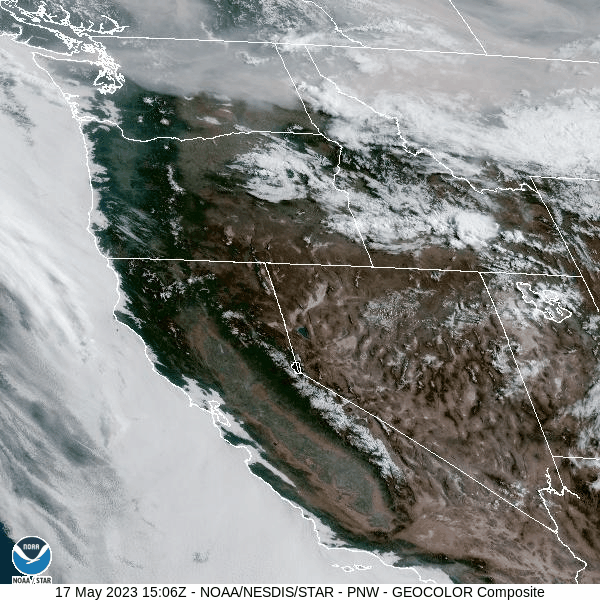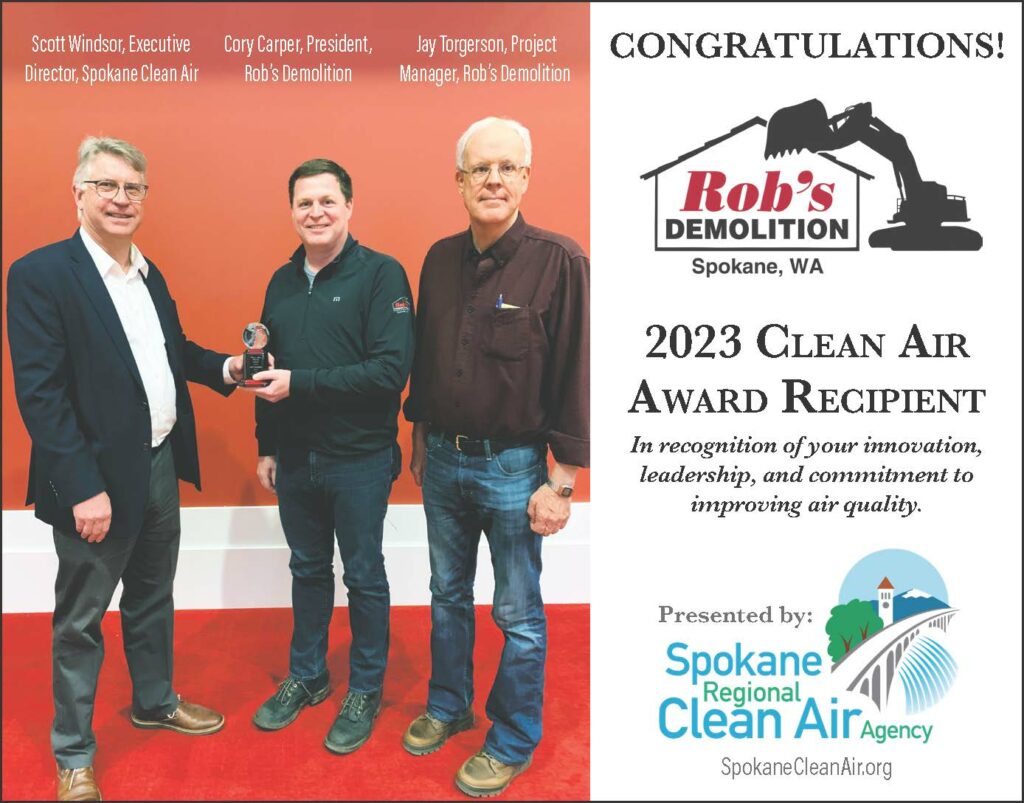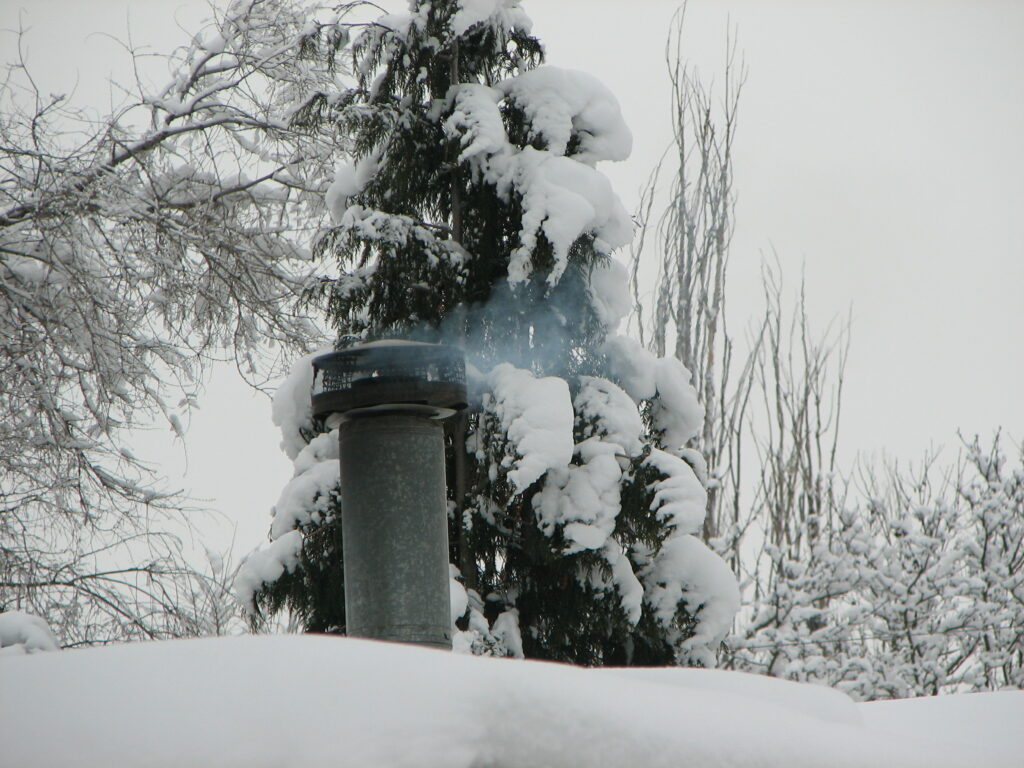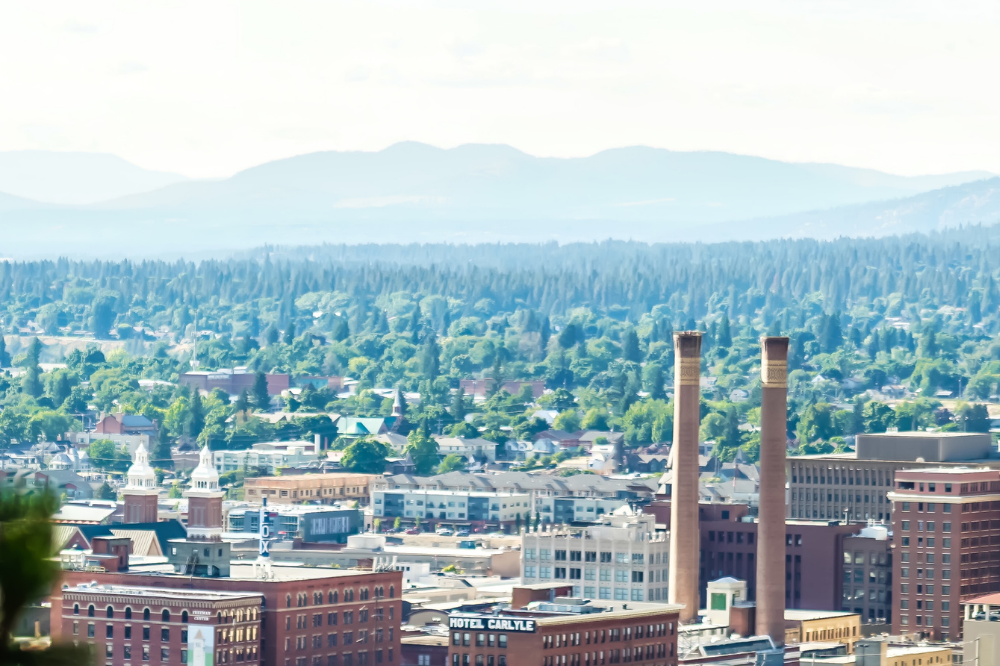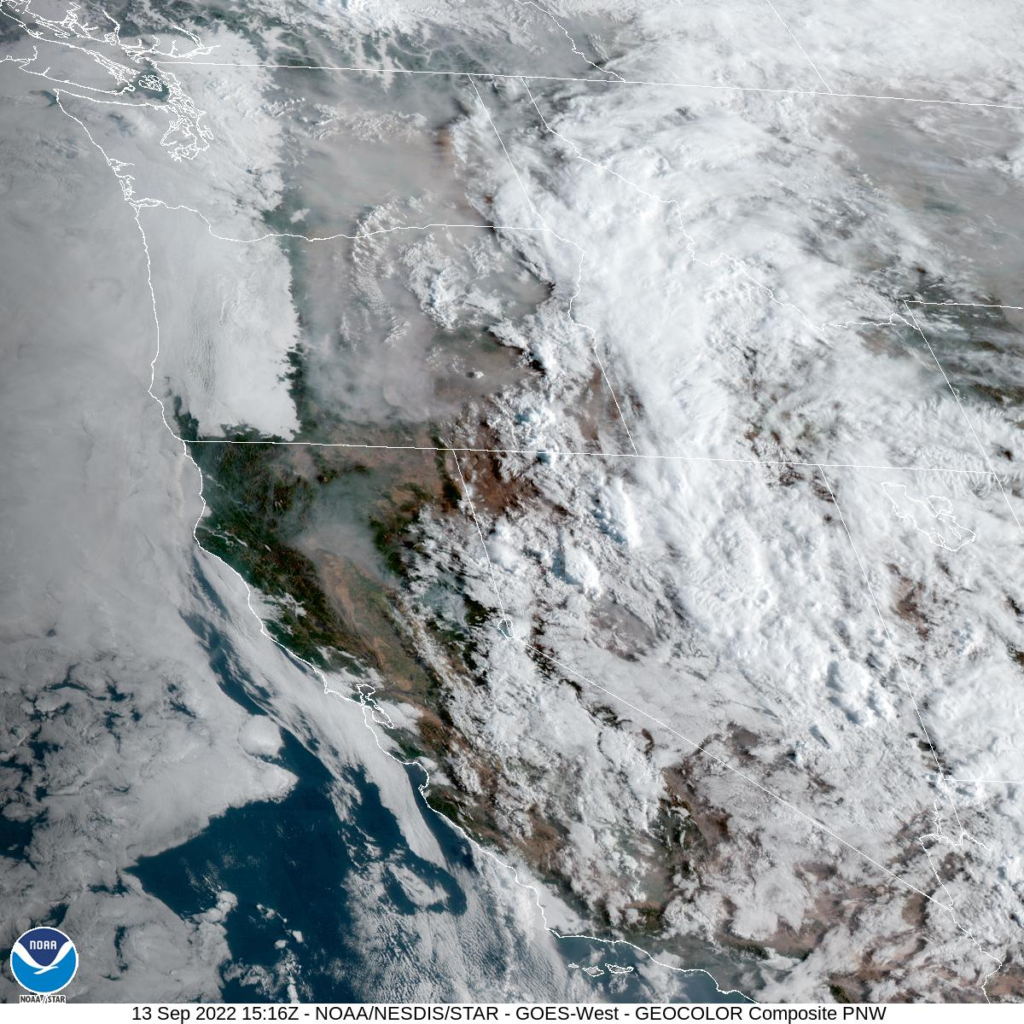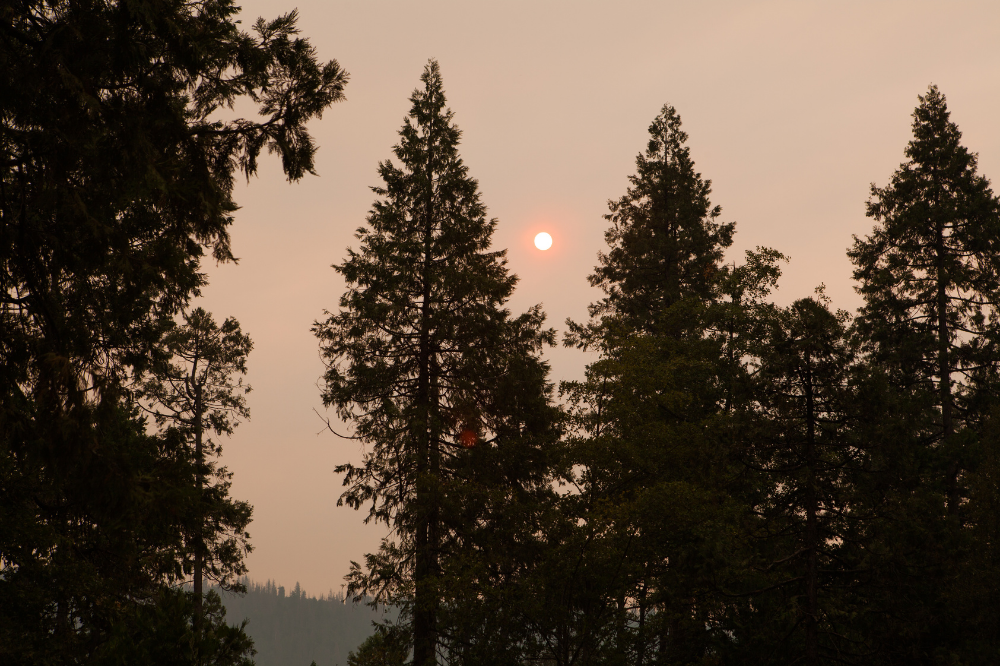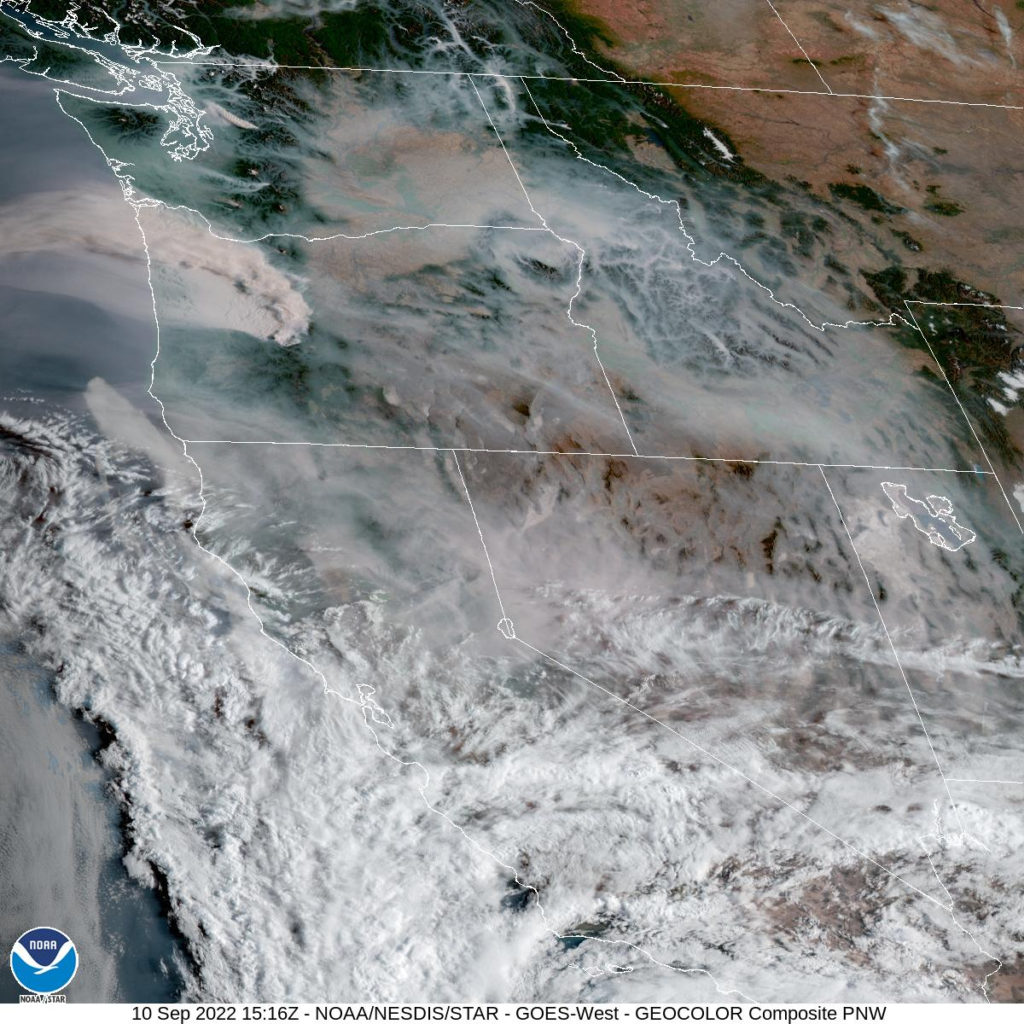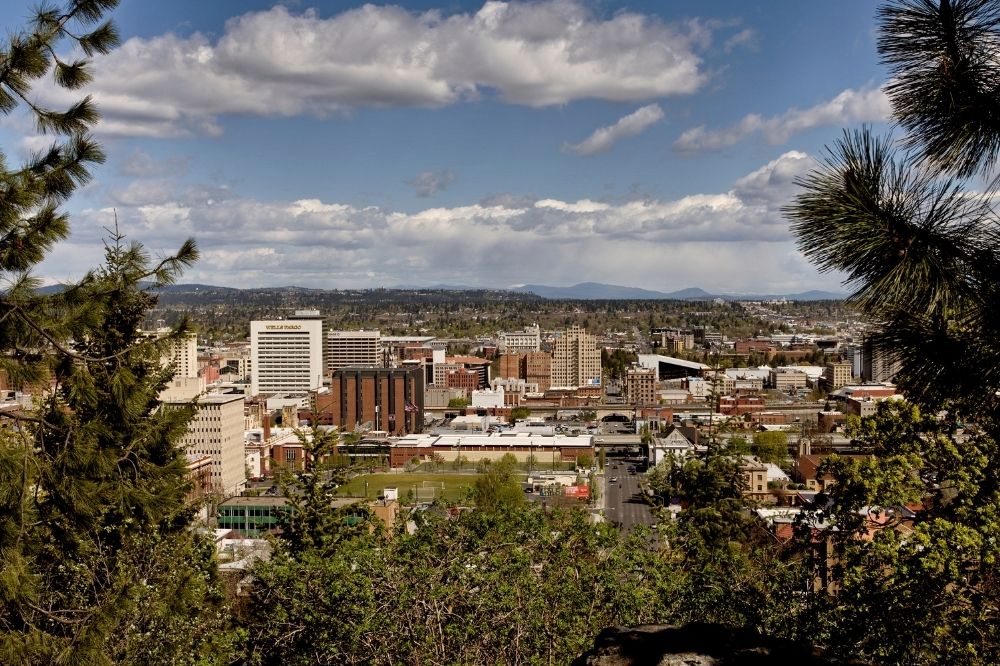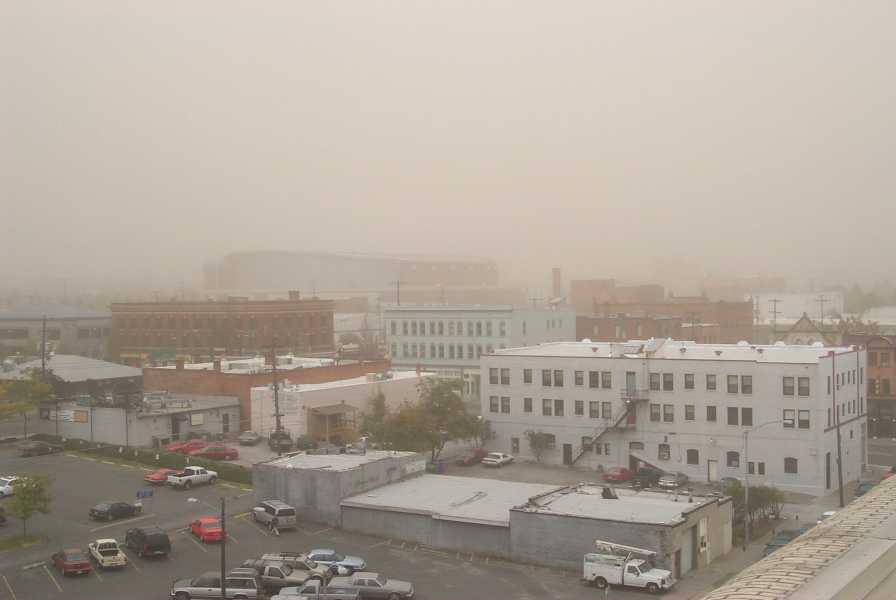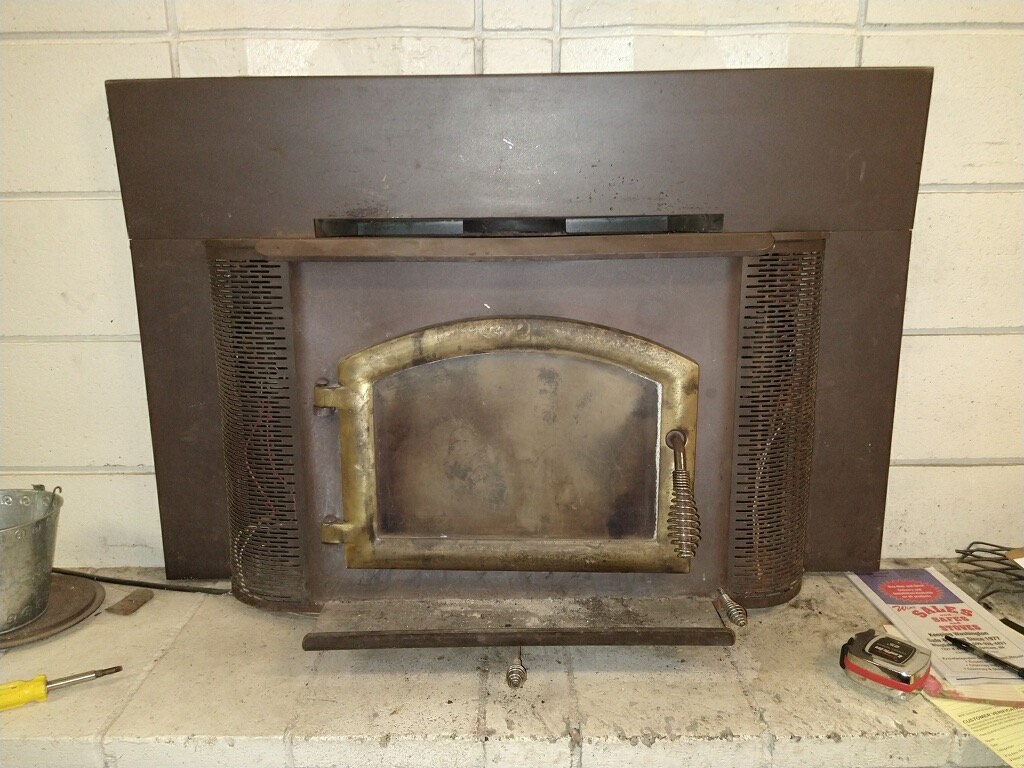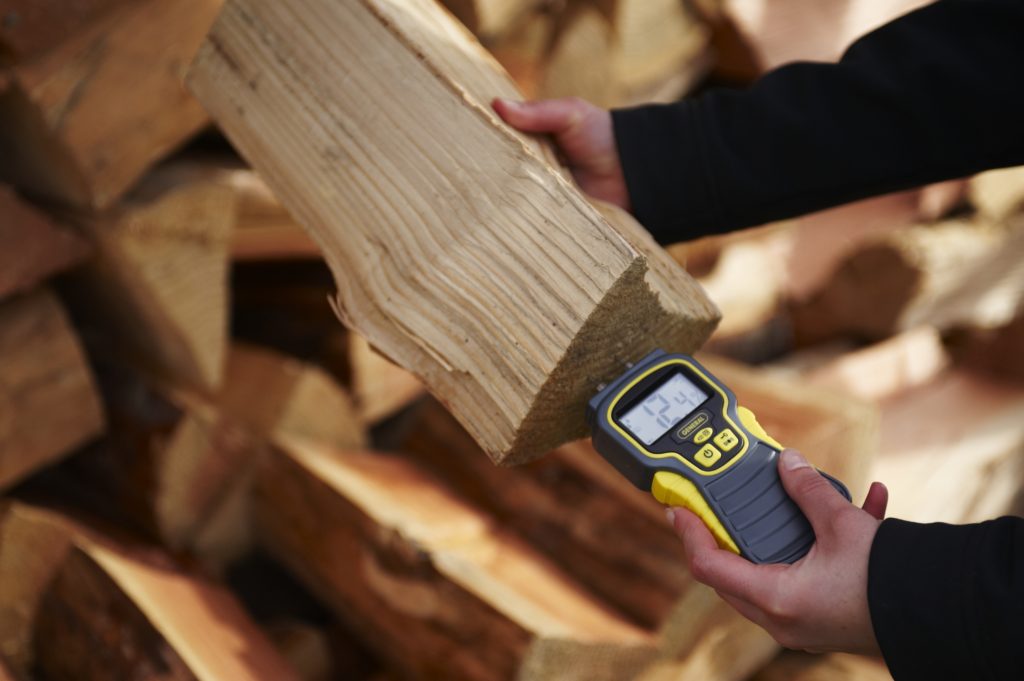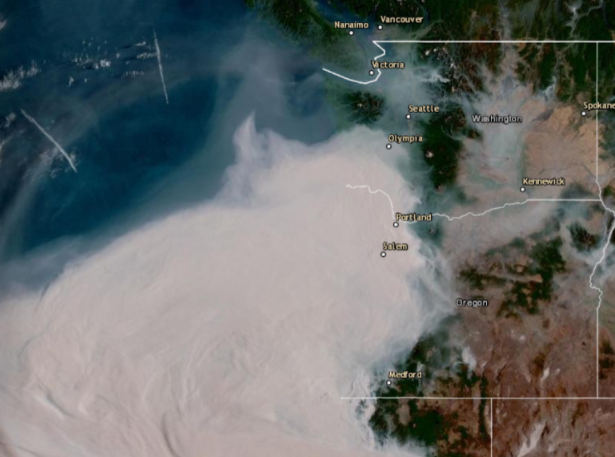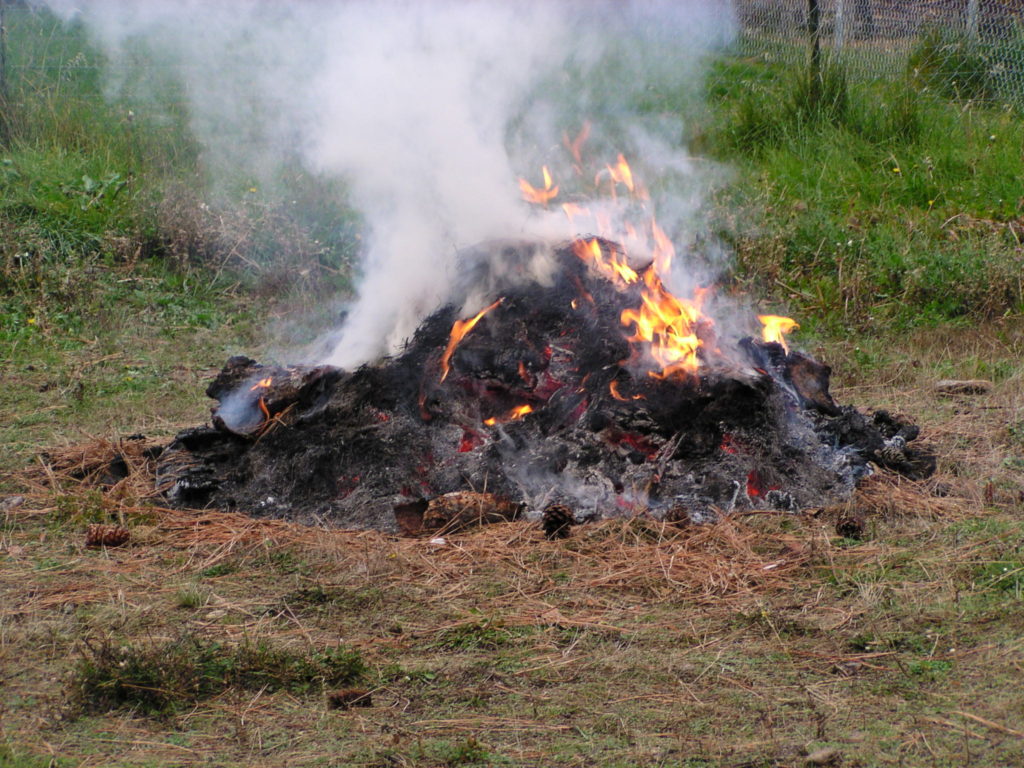
Spring is the time of year when we receive the most inquiries from area residents about outdoor burning on their private property. Here is an overview of the two most common types of outdoor burning in Spokane County.
- For recreational (not disposal) purposes: Burning clean, dry firewood is allowed throughout Spokane County as long as burn restrictions are not in place and specific requirements are followed, outlined here.
- For disposal purposes: Burning natural vegetation is limited to outlying areas of Spokane County. No burning is allowed in cities, towns or urban growth areas. Outside of these areas, burning as an option depends on where the natural vegetation originated on your residential property:
- Improved residential property: This the area surrounding your house that you water, mow and maintain. Natural debris, such leaves, grass clippings, needles, small branches, shrub trimmings, from improved residential property is considered Residential Yard & Garden Debris. Burning this debris is not an option in most areas of Spokane County. It has been significantly scaled back over the years because alternatives are more readily available and affordable, such as composting and mulching. Some areas have curbside pick-up of natural debris. Or it can be hauled to your nearest recycling/transfer stations for a reduced “clean green” fee. Burning residential yard & garden debris is only an option for residents of Fire District 2, 5, 11 or 12 who also live outside of UGAs and cities/towns. If you meet these parameters, contact your district (2, 5, 11, or 12) for permit information.
- Unimproved residential property: This is the area beyond your improved property that is not typically irrigated, mowed or otherwise maintained. This includes timbered pastures, forested land. This property is protected by the Dept of Natural Resources (DNR). Landowners pay a DNR protection tax (State Forest Patrol Assessment). Debris from this unimproved property is referred to as “silvicultural debris.” DNR provides a rule burn where no permit is required for a burn pile of four feet or smaller as long as there is containment line down to bare soil, not a windy day, a shovel/rake, and plenty of water to extinguish if necessary. For a larger burn pile, you must obtain a permit from DNR. Some exceptions allow burning silvicultural debris inside a UGA – only by approval and permit from DNR. DNR can be reached at (509) 685-6900.
While burning can be a useful tool for forest landowners to remove hazardous fuels and restore forest health, it is important to consider other options, such as chipping on-site or hauling off-site. Escaped debris burns are a leading cause of wildfires in Washington. If burning is determined to be the best option, landowners should exercise caution and follow burn rules and permit conditions to avoid escapement or creating excessive smoke. Burning responsibly is the best way to prevent unwanted wildfires and thousands of dollars in suppression costs.
- Improved residential property: This the area surrounding your house that you water, mow and maintain. Natural debris, such leaves, grass clippings, needles, small branches, shrub trimmings, from improved residential property is considered Residential Yard & Garden Debris. Burning this debris is not an option in most areas of Spokane County. It has been significantly scaled back over the years because alternatives are more readily available and affordable, such as composting and mulching. Some areas have curbside pick-up of natural debris. Or it can be hauled to your nearest recycling/transfer stations for a reduced “clean green” fee. Burning residential yard & garden debris is only an option for residents of Fire District 2, 5, 11 or 12 who also live outside of UGAs and cities/towns. If you meet these parameters, contact your district (2, 5, 11, or 12) for permit information.
Visit our outdoor burning webpage for details on outdoor burning programs and alternatives to burning.
